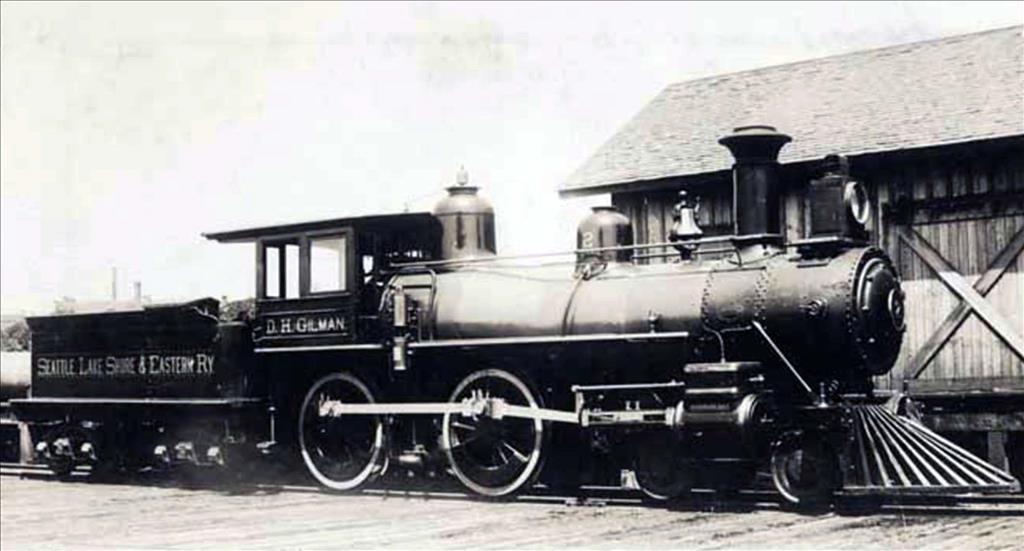Historian Murray Morgan, in his classic book Skid Road: An Informal Portrait of Seattle, called him “the best lawyer in Washington Territory.” Writer Nard Jones, in his history, Seattle, described him as “a roly-poly lawyer.” In Professor G. Thomas Edwards’ history of Whitman College, The Triumph of Tradition, he is depicted as “a superpatriot.” His name was Thomas Burke (1849-1925). He resided in Seattle but engaged in legal, political, and educational matters with gusto throughout the state of Washington from 1875, when he arrived in town, to the 1920s.

The mundane practice of law was never enough to satisfy the bursting Irish energy of Burke. He helped organize the Seattle Opera House, vigorously and honorably opposed the Chinese riots of 1886, and with Daniel Hunt Gilman, incorporated and helped run the Seattle, Lake Shore and Eastern Railroad Company – the remnants of which are today known as the Burke-Gilman Trail winding through north Seattle. In his later years, he became a charter member of the Seattle’s Japan Society.
The infamous Chinese riots took place during February, 1886 in an atmosphere of hatred and unemployment. When the Knights of Labor, an early labor organization, invited Burke to speak at a meeting related to newly-arrived Chinese laborers, he seemed to have the crowd with him as he noted that a new treaty should be made restricting Chinese immigration to the United States.
Suddenly switching gears, Burke decried the lawless manner in which “outsiders” had taken matters into their own hands – meaning the mistreatment of Chinese laborers – defiantly trampling on local laws and the U.S. Constitution. Boos from the audience drowned him out, causing the chairman to plead that order prevail. Burke, feeling his anger rising, brushed the chairman aside with the remark: “I can assure you that I need no one to intercede for me with a Seattle audience.” Later, during the actual hostilities, Burke was accused of firing a shotgun – presumably at non-Chinese rioters. He would be legally cleared of that charge.
When Burke and Gilman raised money to establish a railroad around Lake Washington, it was not Burke’s first experience with civic fundraising. Upon his arrival in pioneer Seattle he was involved in raising money to build a two-plank sidewalk along First Avenue from Pike Street (next to the Public Market) to Belltown. The railroad project attracted such board members as David T. Denny, Thomas Minor, and George Kinnear. Burke went east to solicit financial help and was successful. The first station of the Seattle, Lake Shore and Eastern was a tiny wooden structure near the foot of Columbia Street. That quixotic little railroad, once bound for Walla Walla and never making it much past Renton, was purchased by the giant Northern Pacific in 1890.
For 17 years Judge Burke served as an active member of the Whitman College Board of overseers. Whitman president Stephen B. Penrose relied on Burke’s acumen and generosity. One disturbing incident during his Whitman service: during the Great War, 1916-1918, Burke joined other board members in terminating German language studies.
A man of complex loyalties and attorney for railroads (notably as James J. Hill’s attorney), Judge Thomas Burke left his mark through wit, hard work, a large helping of courage, and a colorful and forceful way with words.
Discover more from Post Alley
Subscribe to get the latest posts sent to your email.

Thank you for the history lesson. I appreciate the posting.
Very informative. I enjoyed learning the origin of the Burke-Gilman trail.